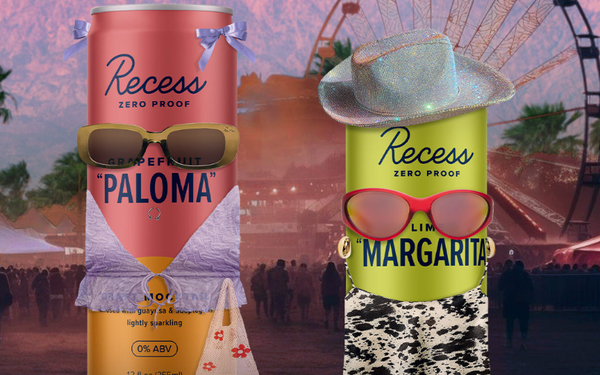
When Recess CEO Ben Witte founded the nonalcoholic beverage
brand out of his apartment around a half decade ago, there weren’t really many options for alcohol alternatives. Since then, the brand has grown considerably, and Witte projects it will be sold
at 30,000 retail locations by 2025.
CPG Insider caught up with Recess founder and CEO Ben Witte to discuss the brand’s evolution, the brand’s place in a growing
category, and how Witte sees its future.
This interview has been edited for length and clarity.
CPG Insider: What was the impetus for launching Recess.
Ben Witte: The origin of Recess dates back to around 2016, when I was looking to start a consumer brand. It started to feel to me like we were entering this new era, where people would
be prioritizing mental wellness and new, healthier ways to reduce stress to unwind. The idea was to utilize CBD, adaptogenic herbs, and magnesium, to have this prospect of healthy relaxation.
advertisement
advertisement
The whole vision for the brand was to become a brand platform, to develop multiple product lines across different formats for unwinding across different moments and occasions. One of the primary
use cases was as an alcohol alternative, particularly in the evening use occasion.
What led to the mocktail line?
My thesis that drove development of the mocktail line, which
launched around a year ago, was the development of a category of RTD mocktails which recreated the most popular cocktail flavors, enhanced with functional ingredients.
We think of the Recess
platform as this very powerful competitive advantage. There are certainly brands positioned as mocktails, some positional as alcohol-alternatives, but we’re the leading mocktail brand, in the
sense of brands recreating popular cocktail flavors.
How are you differentiating the brand now as the category continues growing?
We were pioneers in the space -- which was good
in the sense of less competition, but bad in the sense of consumers not being aware of the category.
The category being more established is both good and bad. When a space is getting more
established, picking your lane is important. When we were starting out, we were able to go a little broader.
It’s about having a very clear, differentiated reason for existing, and a
clear story. We’re trying to continue to identify gaps in the market – whether from a flavor profile, ingredient, or function perspective, and are really focused on articulating an easily
understandable narrative for consumers.
How has your strategy for growth evolved over the course of the past year or two?
We were designed to become an omnichannel business
from the beginning. We launched out of my apartment as an ecommerce brand, but the marketing we were doing to drive the e-commerce business also drove retail. Last year, we were about 50% ecommerce,
50% retail. We’re by far the highest-selling alcohol-alternative brand on Amazon, which we view as leading indicator. We’re in 20,000 retail doors, and have a big expansion at Target right
now. We’re now in most of the major retailers, and expanding rapidly from there.
What was the significance of ecommerce in the brand’s evolution?
Ecommerce with
Amazon has been the engine which helps drive retail, and vice-versa. Our ecommerce is profitable; and we’re spending a good amount of money on paid media on social channels, where we see a
stronger ROI if just measured from an ecommerce sales perspective.
We were well known for our Instagram ads in our early day. wecreated this unique, illustrated brand world, and this
sarcastic, tongue-in-cheek brand voice that I’d describe as commentary on the millennial and Gen Z experience. That created a lot of buzz and virality.
Now we also do a lot of event
marketing, designing immersive experiences that end up generating earned media.
How do you view your marketing evolving going forward?
It’s about expanding top-of-funnel
brand marketing. Nothing with celebrities or large influencers: we’re focused on micro-influencers, and we’re starting on music festivals this summer – and were sold at Coachella.
We’re also about to add streaming video as a channel, and expanding podcast advertising.
How do you view the future evolution of the category?
This space is still in the
earliest part of its development. It has a lot of buzz right now, but these things take time to truly get to scale
I never use the phrase “sober curious,” because I think the
bigger trend is people moderating their drinking more: I think that’s the future. It’s going to be rude in the future to have a party and not have thoughtful alcohol alternatives.